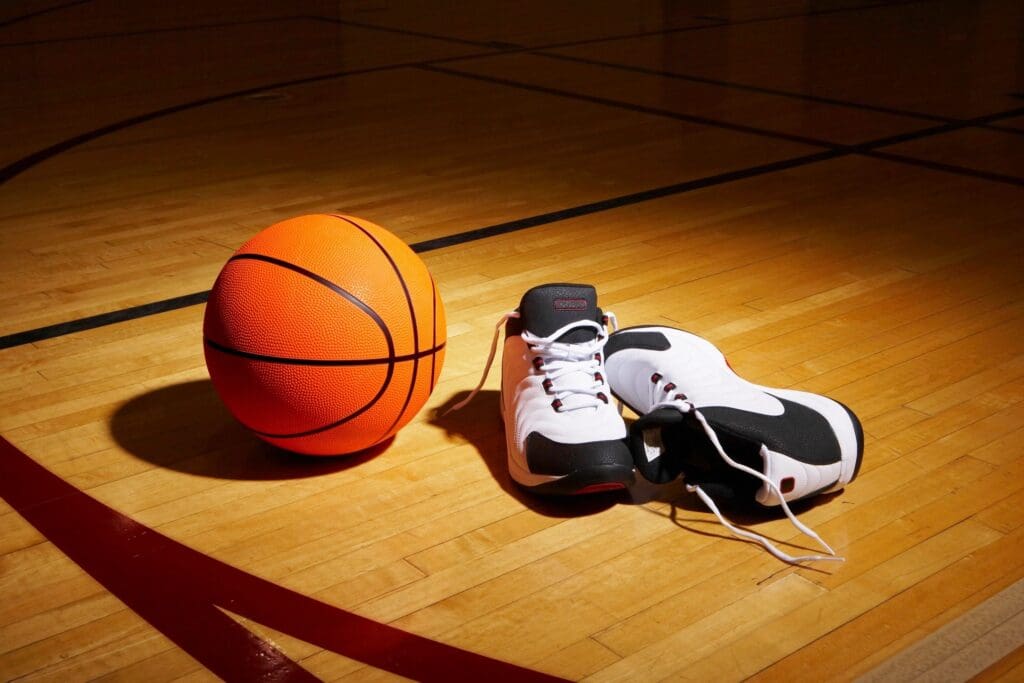Search Posts
Recent Posts
- Dr. Rosemary Costigan Named President of Community College of Rhode Island June 19, 2025
- RI Veterans: Did you know? 19.06.25 (Military Funerals, Job Fair, Benefits, Events) – John A. Cianci June 19, 2025
- East Providence First in U.S. to Equip All Firefighters with PFAS-free Gear June 19, 2025
- We Cook! Mill’s Tavern Saffron Bouillabaisse with Tarhana Lobster Jus June 19, 2025
- Rhode Island Weather for June 19, 2025 – Jack Donnelly June 19, 2025
Categories
Subscribe!
Thanks for subscribing! Please check your email for further instructions.

Caitlyn Clark and breaking the glass ceiling for women in all sports – John Cardullo
Will basketball sensation Caitlyn Clark be the person to finally break through the glass ceiling and lead women in all sports, to an equal economic plateau with men’s sports?
It was back in 1972 when Title IX opened the doors and removed barriers for girls and women playing sports in school. It offered varsity sports to be available to women as it had for men. Although female athletes have fewer teams and fewer scholarships and lower budgets than their male counterparts, things are beginning to change for female athletes. The change began with tennis superstar Billie Jean King who took on Bobby Riggs in a made for television tennis match that was broadcasted in prime time. This brought the conversation right into the homes of the American people. A woman beating a man in front of the world for all to see. But this only opened the door for women athletes, they still had a long road ahead.
As women were making strides, the process was slow. It seemed that women sports were only being showcased in bits and pieces, and mostly every four years when the Olympics came around. After the Olympics were finished, people very rarely followed women’s sports, except for the athletes, friends and family. Then, in 1996, at the Olympic games in Atlanta, women made the games their own, winning Gold medals in Soccer, Softball and Basketball in the most popular of team sports. Four years earlier in the 1992 Olympic Summer games featured the Men’s “Dream Team” that was made up of professional basketball players, such as Larry Bird, Michael Jordan, and Magic Johnson. The Women’s team was just as “loaded” but because there were no professional teams for the women to come from, they were college and amateur athletes.
Soon after the 1996 Olympics ended, the WNBA was formed. Partnered with and backed by the NBA they opened for business in 1997. Eight teams kicked off the first season, the Charlotte Sting, Cleveland Rockers, Houston Comets, New York Liberty, Los Angeles Sparks, Phoenix Mercury, Sacramento Monarchs and the Utah Starzz. Although it wasn’t the first women’s professional league, it was the only one that was supported by the partnership with the NBA. Having several television partners with NBC, Disney, ESPN and the Lifetime networks, the league started a promotional campaign with the women stars saying, “We got Next!” into the camera. Rebecca Lobo, Sheryl Swoops and Lisa Leslie were the foundation the league was being built on.
The WNBA expanded to 16 teams by 2000, but the lockout of the NBA had a dramatic affect on the WNBA. Franchises struggled after the lock out and two teams folded up operations, while two additional teams moved to other cities. Running on thin budgets, the WNBA managed to weather the storm. Franchises in Detroit and Connecticut proved to be a shot in the arm for the league. It didn’t hurt that the University of Connecticut Lady Huskies were dominating Women’s College basketball in a way that only the UCLA Men’s teams once did in the 1960’s into the 1970’s. Women’s college basketball teams were getting better across the United States. Tennessee, South Carolina, USC, UCLA and Iowa. The talent that was coming from these and more colleges was benefiting the WNBA in ways that the founding fathers and mothers only dreamed about.
Fast forward to the 2023-24 season, when a sharp shooting point guard who could make a basket virtually from any spot on the basketball court, who also was a great all-round player, put the country on its ear. Caitlin Clark took the Iowa Hawkeyes to two National Championship appearances in back-to-back seasons. Clark’s long range jump shooting put her in the category of one of the NBA’s greatest all-time best outside shooters Steph Curry. But this woman also led her team in assist’s and was one the team leaders in both steals and rebounding. Often regarded as one of the greatest collegiate players of all time with 3,951 total points.
Breaking the women’s scoring record previously held by Kelsey Plum of Washington who scored 3,527 points. But what makes Clark’s record more impressive is that she passed the men’s all-time leader as well. Eclipsing Pete Maravich’s 3,667 points while playing for LSU from 1967-1970. To say that the Caitlyn Clark effect across the country was phenomenal would be an understatement. She and her Iowa teammates set attendance records at their school, and at every opponent’s home court. Her jersey was the highest selling shirt this past season, including both college and NBA. The ratings for her games were among the largest TV ratings for a college basketball game of all time, and for the first time the Women’s NCAA finals out drew viewership for the Men’s finals. Clark made it cool to be an Iowa Hawkeye fan!

Clark was the first player selected in the WNBA 2024 drafted by the Indiana Fever. Her replica jersey is number one in sales of all time WNBA history. However, her salary, not including endorsements is in the mid-$70,000 per season. Driving home the fact that there is still a wide financial gap between the men’s NBA and the women’s WNBA. The minimum amounts a male player in the NBA makes is approximately $1.1 million dollars a year and so far Jackie Young of the Las Vegas Aces makes $252,420, Jewell Loyd of the Seattle Storm makes $245,508, Kahleah Cooper Phoenix Mercury makes $245,059, Arika Ogunwobale of the Dallas Wings makes $241,984 and Diana Taurasi of the Phoenix Mercury makes $234,936 annually.
Compared to the top five male players of the NBA: Steph Curry of the Golden State Warriors who makes $51,915,615, Kevin Durant of the Phoenix Suns who makes $47,649,433, Joel Embiid of the Philadelphia 76ers and LeBron James of the Los Angeles Lakers who both make $47,607,350 each, and Nikola Jokic of the Denver Nuggets who makes $47,607,350 annually. These numbers for each of the ladies and men are not including endorsements.
As you can see, the financial gap between the two leagues is night and day! Let’s be honest, the NBA has been around much longer than the WNBA. The NBA has an established brand, the NBA is established as a very marketable professional basketball league. It is the WNBA’s hope that the established players already in the league and the addition of Caitlyn Clark will hope close the gap between the two leagues. At 22 years old, Clark has proven herself to be an athlete that knows the value of promotion and marketing both herself and her team as well as her sport. Right now, the sky’s the limit, but her being a role model for young girls who just witnessed her reach for the starts and grab hold of one, could be her legacy for the future players who now have the dream of being the next Caitlyn Clark.
___

John Cardullo, sportswriter. John is a lifelong Rhode Islander. His sports experience is extensive, as a player, coach and sponsor of youth and high school sports. He has been the Public Address Announcer for the CCRI Men’s and Women’s Soccer teams. Both the Cranston East and Cranston West football, Cranston East Boys and Girls basketball for 12 years before moving onto the Central, Juanita Sanchez and Mt. Pleasant football teams. Also, Central HS Boys and Girls Basketball, Scituate High School Boys and Girls Basketball, Johnston High School Girls Basketball, Boys Volleyball, Girls Softball, Boys and Girls Soccer teams, and CLCF football.
John has been involved in Men’s softball for 61 years, starting as a batboy for his father’s team in 1964. He moved to the teams scorekeeper then became a player in 1975, and created the men’s team, Players Corner Pub, that went on to win 20 State Championships in their 35 year history. In the 1990’s he published the statewide softball magazine “The Fielders Choice” which was dedicated to all topics related to adult softball. As a feature writer, John and the publication won several media awards. In 2019 he was elected and inducted into the Rhode Island Slow Pitch Softball Hall of Fame which he also helped create. John is a softball umpire in Warwick, Rhode Island.
In his spare time John golfs with his life long friends on a weekly basis in season. After retiring from the printing Industry after a 45-year career, he now writes specialty sports columns for RINewsToday.com.
